Tuesday Feb 24, 2026
Tuesday Feb 24, 2026
Friday, 28 December 2018 00:00 - - {{hitsCtrl.values.hits}}

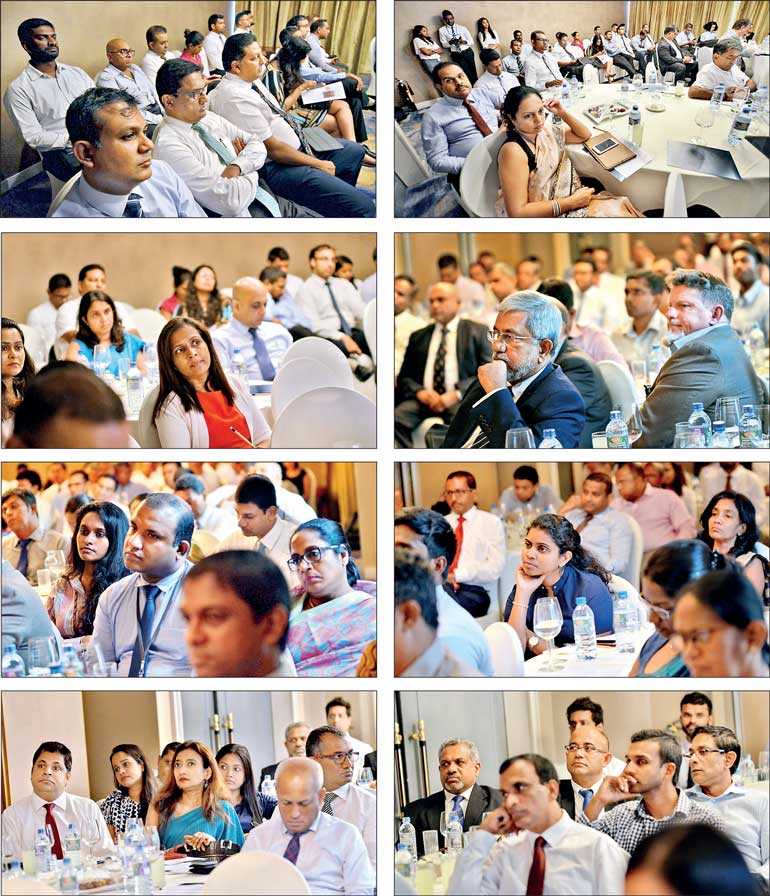
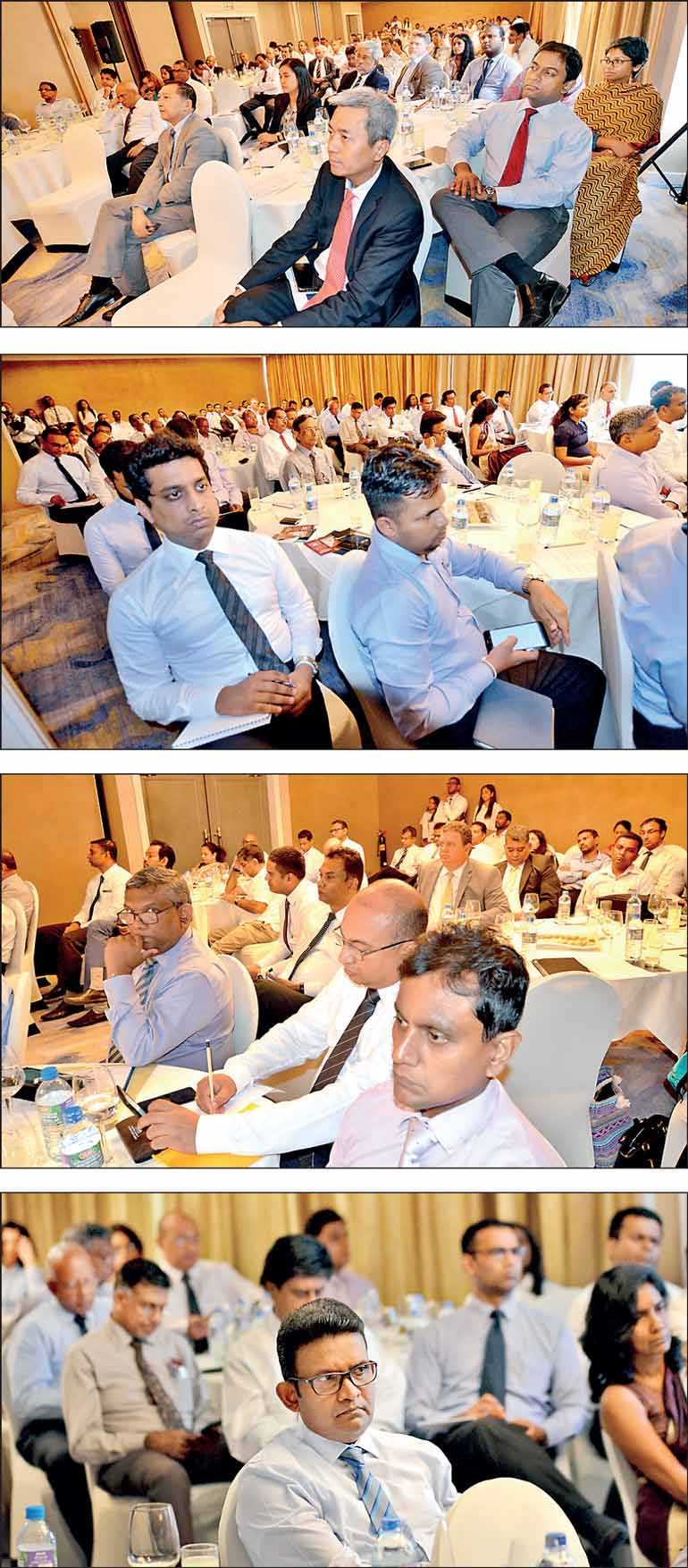
pricewaterhouse-COOPERS Sri Lanka recently held a forum to promote investment opportunities in Myanmar.
A host of PwC regional experts and others shared key insights to investing in Myanmar, the tax environment, latest legal developments and the outlook for infrastructure development in this emerging Southeast Asian nation.
Subjects and Speakers included Introduction to ‘Doing Business in Myanmar’ by Ong Chao Choon, Managing Partner, PwC Myanmar, Deputy Chairman and Advisory Leader, PwC Singapore and Janeshwar Pachigolla, Managing Director, PwC Myanmar; Myanmar Infrastructure Outlook – Challenges and Opportunities by Brandon Lye, Director, Capital Projects & Infrastructure, PwC Singapore; Myanmar’s Tax Environment – Managing the Impact on Your Investment by Paul Cornelius, Tax Partner, PwC Singapore; and Investing in Myanmar – Latest Legal Developments by Minn Naing Oo, Managing Director, Allen & Gledhill Myanmar Co Ltd., Partner, Allen & Gledhill LLP, Singapore.
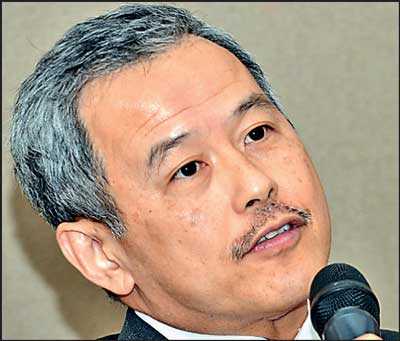 |
PwC Singapore Deputy Chairman and Advisory Leader, PwC Myanmar Managing Partner Chao Choon ONG |
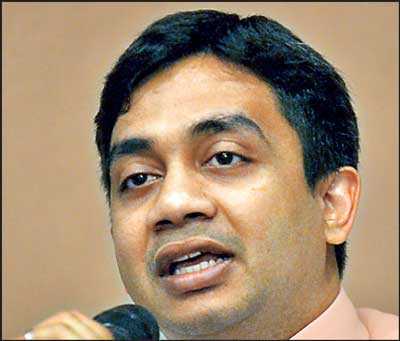 |
PwC Myanmar Managing Director, Deals Advisory Janeshwar Pachigolla |
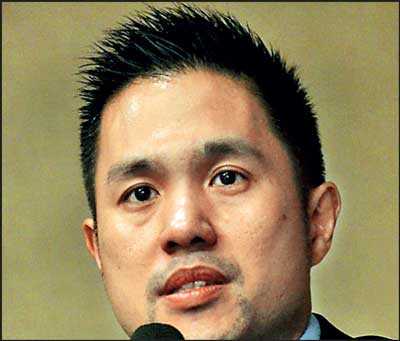 |
PwC Singapore Director, Capital Projects and Infrastructure Brandon YS Lye |
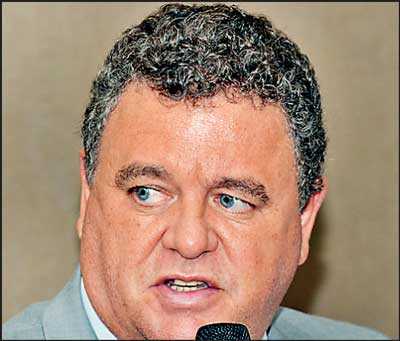 |
PwC Singapore Tax Partner Paul Cornelius |
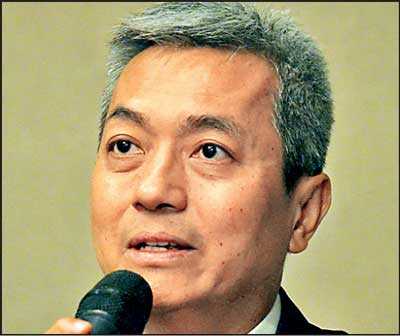 |
Allen & Gledhill (Myanmar) Managing Director Minn Naing Oo |
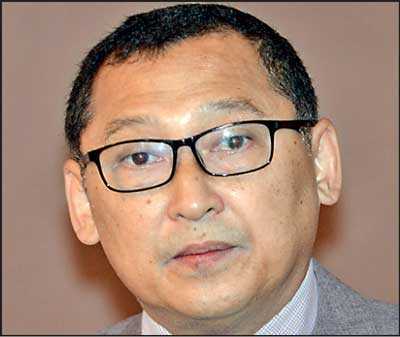 |
Ambassador of Myanmar in SL Han Thu |
Ong Chao Choon said PwC helps foreign businesses invest in Myanmar, transform and grow local businesses and advice on infrastructure and government.
PwC Myanmar’s multiple competencies ensures provision of integrated end-to-end solution including advisory, risk assurance and tax services.
He said in 2012 PwC returned to Myanmar managed by PwC Singapore and has over 130 employees, the largest out of the Big 4. To date the value of deals closed or funds raised was over $ 4 billion via 24 transactions/initiatives.
Among companies/investors helped are TPG acquisition of largest whiskey distillery Grand Royal which was subsequently sold to Thai Bev; Unilever JV with EAC the leading personal and home care business, Wilmar JV with Great Wall Group in sugar business, SC Capital a private equity fund acquisition of MICASA Hotel in Yangon, and investments into largest telecom firm, education businesses.
Janeshwar Pachigolla said Myanmar is said to be the last frontier market and expected to become Asia’s next rising star and despite the late start, Myanmar’s integration with the global economy is already visible on the ground.
Economically amongst the poorest in Southeast Asia but with significant headroom to grow with expectation to be one of the fastest growing economies in ASEAN over next five years
Over the past six years Myanmar grew at average of 7.2%.
Its middle class growing in double digits with estimate for 2020 being 10.3 million as opposed to 7.3 million in 2016. He also highlighted about the large and young population, the strong workforce and local consumption potential. Around 70% of the population is below 40 years of age and urbanisation has a long runway for growth. Additionally the young Myanmar are increasingly aware of global brands but continues to be rooted in traditional aspects.
However interested investors also face many challenges. They include tax collection leakages; lack of reliable power supply; bureaucracy barriers; limited access to financing; aging and inadequate infrastructure; capacity of workforce; ethnic conflicts; high land prices and foreign exchange depreciation and inflation.
Though doing business in Myanmar still remains a concern, he said that despite challenges, Myanmar is one of the last remaining frontier markets with a high growth potential. Increasing urbanisation and growing middle class, spending more time online, growth in income levels expected to drive propensity to shop online, growing ease of internet access – penetration of smart phone, affordable of 3G/4G access, improving ecommerce ecosystem – online payment, online marketplaces (Facebook) and evolving industry landscape, and early mover advantage for new entrants. FDI in Myanmar is still ahead of others in Southeast Asia having in terms FDI per GDP which was 11.3% as opposed to 6% for Vietnam, 0.7% for Thailand, 9.2% for Cambodia and Laos and 1.1% for Bangladesh.
China is the biggest investor with $ 20 billion, followed by Singapore ($ 18.7 billion), Thailand ($11 billion), Hong Kong ($8 billion), UK ($ 4 billion), South Korea ($ 4 billion).
Minn Naing Oo said Myanmar is the second largest country in Southeast Asia (677,000 square kilometres) and is richly endowed with natural resources and vast quantities of untapped arable land. Myanmar’s GDP is valued at $ 63 billion and its exports are around $ 12 billion and imports amount to $ 17 billion.
The level of urbanisation remains lower than the Southeast Asian average (13% of 52.45 million Myanmar people reside in cities as compared to the average of 37%) and the 2015 election ushered in a new democratic government as well as enhancement of business-friendly environment with new Myanmar Investment Law and new Companies Law.
Speaking of the Myanmar Investment Law, he said it came into force on 18 October 2018 and consolidates and replaces the previous Foreign Investment Law 2012 and the Citizens Investment Law of 2013. The Myanmar Investment Rules 2017 came into effect on 30 March 2017.
There are two types of processes which investors may undergo to obtain approval from the MIC for investments in Myanmar: 1) MIC Permit application process and MIC Endorsement application process.
Investments requiring a Permit under Section 36 of the Myanmar Investment Law includes: Investment businesses aligned to Myanmar’s strategy; large capital intensive investment projects; large impact on the environment and local community; use of state-owned land and buildings and investments designated by the government to require the submission of a proposal.
MIC Endorsement facilitates: Faster approval process for investments in non-restricted businesses; and entitles investors to enjoy land use rights and other exemptions and reliefs.
Foreigners cannot own land in Myanmar (Transfer of Immovable Property Restriction Law 1987) and the only exception to this prohibition is a long term lease over land (50 +10 +10) with either MIC Permit or Endorsement. The MIC Permit is a longer process and covers only certain business activities whilst MIC Endorsement is a faster process.
Some of the promoted sectors under MIC include Agriculture; Plantation and Conservation of Forest; Livestock production, breeding and production of fishery products; Manufacturing; Supply and Transport Services; Telecommunication business; Education services; Health services; Information Technology Services and Hotel and Tourism.
Under the current Companies Act companies are either classified as a Myanmar company or a foreign company. Foreign companies were companies that have one or more shares owned or controlled by foreigners. Under the MCL, a foreign company has been defined as: “A company incorporated in the Union in which an overseas corporation or other foreign person (or combination of them) owns or controls, directly or indirectly, an ownership interest of more than 35%”.
In terms of banking and finance, foreign bank branches are now allowed to offer trade financing. PwC said seven of the 13 foreign banks (with more to come) have been authorised by CBM to provide export financing services to local traders. There remain restrictions on foreign banks’ provision of basic retail transactions like account openings, local money transfers and MMK-denominated loans.
A part of CBM’s drive in the next 5-10 years to liberalise the financial sector.
Brandon YS Lye provided an overview of Myanmar infrastructure. He highlighted multiple initiatives in boosting energy supply, roads and urban development, multi-modal transportation, and telecommunications. The China-Myanmar economic corridor under the China’s Belt and Road Initiative will connect four key cities. Yangon and Mandalay has over 80% of the Myanmar’s industrial estate land. Three special Economic Zones have been created to attract FDIs.
Paul Cornelius said Myanmar being an emerging country, its current tax environment is evolving rapidly and challenging.
He said when entering Myanmar investors/companies have several options. They include an incorporated company 100% or joint venture or a branch. A foreign company is allowed to have 35% stake in a Myanmar company.
He said some investors are investing into Myanmar directly from their home countries and alternatively there are some are also investing through holding companies, e.g. Singapore, Thailand, etc. He said profit repatriation should be not be a concern in Myanmar, subject to foreign exchange rules.
More than 20 taxes governed by different ministries with income tax and commercial tax accounts for majority of total collection. He said modernising current tax laws and administration and enforcing tax compliance are in the progress.
Pic by Shehan Gunasekara